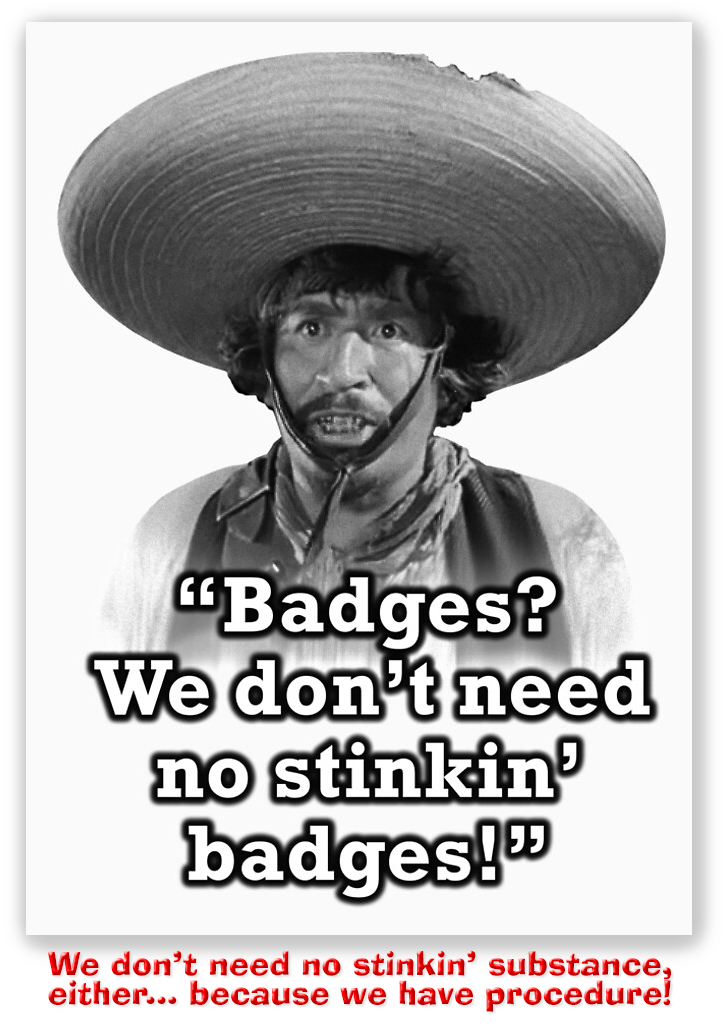We post news and comment on federal criminal justice issues, focused primarily on trial and post-conviction matters, legislative initiatives, and sentencing issues.

IN § 2255 CASES, PROCEDURE MATTERS
 Over the past three weeks, Russia has been reminded of the truth of General Omar Bradley’s old saw that “amateurs talk strategy, professionals talk logistics.” Likewise, two cases handed down last week underscore the truth that inmates talk substance, judges talk procedure.”
Over the past three weeks, Russia has been reminded of the truth of General Omar Bradley’s old saw that “amateurs talk strategy, professionals talk logistics.” Likewise, two cases handed down last week underscore the truth that inmates talk substance, judges talk procedure.”
DeMarko Collins pled guilty to being a felon in possession under 18 USC § 922(g)(1). DeMarko’s presentence report determined he had two prior felony convictions for crimes of violence, including a Missouri 2nd-degree robbery, which enhanced his Guidelines advisory sentencing range under USSG § 2K1.1.
Five months before DeMarko’s sentencing hearing, a divided 8th Circuit panel held in United States v. Bell that Missouri 2nd-degree robbery was not a crime of violence, but DeMarko’s attorney goofed and did not cite the decision in opposing the § 2K2.1 enhancement. The district court granted the government’s motion for an upward variance, and sentenced DeMarko to 216 months.
DeMarko appealed his sentence. Relying on Bell, he argued the § 2K2.1 enhancement should not have applied. But while his appeal was pending, the 8th Circuit en banc overruled Bell and held that a Missouri 2nd-degree robbery is a violent felony after all. Because of that, Demarko lost his appeal.
 DeMarko then filed a § 2255 post-conviction motion, arguing that his lawyer should have cited Bell, which had been controlling authority and good law at the time of his sentencing. The district court denied the § 2255, finding that even if DeMarko was right that his lawyer should have raised Bell at sentencing, “he cannot demonstrate he was prejudiced by” the error.
DeMarko then filed a § 2255 post-conviction motion, arguing that his lawyer should have cited Bell, which had been controlling authority and good law at the time of his sentencing. The district court denied the § 2255, finding that even if DeMarko was right that his lawyer should have raised Bell at sentencing, “he cannot demonstrate he was prejudiced by” the error.
Last week, the 8th Circuit agreed, holding that by the time DeMarko on “direct appeal cited Bell in challenging his § 2K2.1 enhancement based on a Missouri 2nd-degree robbery conviction, Bell had been overruled… and this prior conviction was once again a predicate crime of violence under the Guidelines. Strickland prejudice ‘focuses on the question whether counsel’s deficient performance renders the result of the trial unreliable or the proceeding fundamentally unfair…’ DeMarko was not deprived of a substantive or procedural right to which the law entitles him, so he ‘suffered no legally cognizable prejudice’.”
Meanwhile, in the 9th Circuit, Cesar Gonzalez filed a 28 USC § 2244 application for permission to file a second § 2255 motion. He wanted to argue that his 18 USC § 924(c) conviction for having a gun in furtherance of a crime of violence was invalid because his predicate crime – racketeering – was no longer a categorical crime of violenceunder a new rule of constitutional law announced in the Supreme Court’s United States v. Davis decision.
Last week, the 9th Circuit shot Cesar down, finding that his new Davis argument was not “previously unavailable” as required by 28 USC § 2255(h)(2).
When Davis was handed down, Cesar had filed his § 2255 motion, and the government had responded. Cesar, however, had not yet filed his reply. The 9th Circuit ruled that to show the argument was “previously unavailable” to him, he had to show “that the real-world circumstances that he faced prevented him, as a practical matter, from asserting his claim based on a new rule of law in his initial habeas proceeding.”
The Circuit said it “recognized that pro se prisoners face unique difficulties when litigating habeas relief or anything else, and that language barriers, as Cesar cited in his case, add to those difficulties.” However, the 9th ruled, “nothing in the text or context of AEDPA‘s previously-unavailable-claim requirement suggesting that this limited exception to the otherwise broad prohibition against filing second or successive habeas proceedings was intended to be applied subjectively.”
 The 9th concluded that Cesar could show that his new Davis argument was unavailable during his initial § 2255, where Davis issued shortly before Cesar filed his reply brief and a few months before the § 2255 was decided. Cesar had the facts that he needed for his claim, the Circuit held, and no systemic or external barrier prevented him from presenting his claim in his initial habeas proceeding.
The 9th concluded that Cesar could show that his new Davis argument was unavailable during his initial § 2255, where Davis issued shortly before Cesar filed his reply brief and a few months before the § 2255 was decided. Cesar had the facts that he needed for his claim, the Circuit held, and no systemic or external barrier prevented him from presenting his claim in his initial habeas proceeding.
So it did not matter that Cesar stood convicted of a § 924(c) offense unlawfully, because a hypothetical reasonable inmate would have tried to raise Davis in the nearly-completed § 2255 proceeding.
Substance? Who cares about substance when procedure triumphs?
Collins v. United States, Case No. 20-3662, 2022 U.S. App. LEXIS 6725 (8th Cir., March 16, 2022)
Gonzalez v. United States, Case No 20-71709, 2022 U.S. App. LEXIS 6943 (9th Cir., March 17, 2022)
– Thomas L. Root

